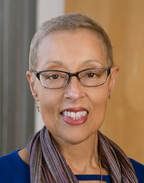We have all been made aware of the dwindling workforce pool if we maintain status quo and only invite people to the table who look, talk, and act just like the traditional leaders of businesses. Our leaders must break out of the box and change their fundamental mindsets to embrace diversity, equity and inclusion and then lead their respective organizations with that new vision. The studies have been done repeatedly and continue to show the array of positive benefits to any company’s bottom line by doing so.
So as a CEO, CFO, COO, CHRO or anyone at the C-Suite level, how do you get there? You must do the work! This is not ‘fluff’ nor should it be the first thing to go when you get in a crunch; it is one of the most important things you can do, and it is not easy. Confronting your own biases, existing in discomfort is not generally what you seek out, but the growth extends to all areas of your life and frankly, will bring you some amazing experiences. The St. Paul Area Chamber's DEI Collaborative program has been serving business leaders in the Twin Cities area for over 7 years and business leaders who have participated in it praise the approach. Each cohort of 10-15 leaders engage in confidential conversations guided by an experienced facilitator and in the process, deepen personal commitment to diversity, equity, and inclusion and leveraging that commitment to lead meaningful change. The next cohort starts in September 2022. We would love to have you participate! To learn more about the DEI Collaborative, please click here. For questions and inquiries, please contact Kristie. B will be back next week with thoughts and a quick read on things you should know. See you in the trenches, Your Chamber Team
0 Comments
First things First: This past Sunday, June 19, marked Juneteenth, commemorating June 19, 1865, the day enslaved people in Texas were informed of their freedom – 2-1/2 years after the Emancipation Proclamation of 1863. Observing this day is vital because it reminds us that work still needs to be done to eliminate inequalities and injustices in our communities. Along with most of you, I imagine, I’ve been reflecting on much of the news. From the House committee investigative hearings regarding the January 6 insurrection at the US Capitol (on a side note: The AP recently published an article on the thirst for power, comparing Jan 6 with Watergate, which sent my thoughts along this path; worth reading), to Putin’s actions in Ukraine. Or even the more mundane madness of a Minnesota legislative session that ends without committing the billions of unspent surplus. I’ve been thinking about the nature of power. Where is the learning for us? This phrase from 19th-century historian Lord Acton, “power tends to corrupt, and absolute power corrupts absolutely” is a warning against the negative effects of power. The true threat, for each of us, is that increased power threatens to corrupt a person, lessening our morality. Leadership, at its core, is all about power and influence. That’s why, to my mind, the concept of “servant leadership” is so pivotal. For most of us, we start, innocently enough, from a place of striving to do good. And yet somewhere, somehow, along the way we start abusing the privilege of leadership. Ever so subtly at first. No matter how large or small our domain, when we have authority over it we are vulnerable to abuse of that authority. So I’ve been doing some reading: how can I avoid being corrupted by power? The Keller Institute wrote a great piece on how to “Escape the Corruption of Power”:
It’s challenging to be both great and good. That said, we can be encouraged; self-awareness and diligence – and courage - can be a protection. And we can channel Mother Teresa who, when asked about the great things she did, assured us that “none of us, including me, ever do great things. But we can do small things, with great love, and together we can do something wonderful.” See you in the trenches. B
State
Regional
Subscribe to our Chamber Advocacy Update to keep up with advocacy news.
Another Simon Sinek podcast to share with you today. I love that guy. In his “A Bit of Optimism” podcast, Sinek recently interviewed Arthur Brooks, and they talked about a number of things including Brooks’ new book, From Strength to Strength: Finding Success, Happiness, and Deep Purpose in the Second Half of life. Here is the link to this podcast. Why did it captivate me? Two main points resonated with me: #1: “The Satisfaction Problem” (around minute 11:30) As he prepared for this book, Brooks asked the Dalai Lama how to solve “the satisfaction problem.” We think of satisfaction as getting what we want, achieving something, of having things: “If I have that job, that relationship, that car or house, THEN I’ll be happy.” The Dalai Lama’s answer was that to get stable happiness, we need to stop striving to have what we want and start wanting what we have. The real way to understand this: our satisfaction is what we have divided by what we want. HAVES/WANTS. SO, if we spend less time WANTING, our satisfaction equation increases. Instead of, “I wish I had the new,” it’s “I love the thing I’ve got.” #2: “Fluid Intelligence” vs “Crystallized Intelligence” (around minute 21) And then, how do we continue that satisfaction into the second half of our lives? Around age 70, the population splits: ½ continues to be happier all the way to the end of life; the other ½ starts experiencing decreasing happiness. Why? As we age, our intelligence shifts from “fluid intelligence” to “crystallized intelligence.” The first is defined by our energized, innovative, and creative work; the second reflects a different set of skills, wisdom, and intelligence, that we can capitalize on as masters/teachers and sharing that learning with the next generation. We can transition to becoming other-focused. Brooks shared the example of Johann Sebastian Bach, an innovative musical genius, who made the transition to master/teacher. He was the creator of high baroque style, among the most prolific composers in history. One of his sons, Johann Christian Bach, created a new style of music – classical style. That son ultimately eclipsed his father. Instead of striving to compete, the father spent the rest of his life as a master teacher of the forms. He was beloved, happy, surrounded by family and students…. he spent the second half of his life in service to others. All by remodeling his life and embracing the transition. Really inspiring to me – starting each day with a sense of fullness and satisfaction and focusing on how to serve others…. I hope it inspires you as well! Speaking of podcasts, listen to my latest episode of B's Table Talk featuring Amanda Rome, Executive Vice President, Chief Legal and Compliance Officer at Xcel Energy and check out the archives here. See you in the trenches. B
Regional
Subscribe to our Chamber Advocacy Update to keep up with advocacy news.
Happy Birthday (June 5) to our fearless leader B Kyle! This week B takes a break from her blog as she celebrates another trip around the sun, so we’re taking over her blog and sharing a few things we’re celebrating.
B will be back next week with more thoughts and a quick read on things you should know. See you in the trenches. Your St. Paul Area Chamber Team |
Archives
July 2024
|
|
Address:
401 Robert St. N., Suite 150 St. Paul, MN 55101 |
Office Lobby Hours:
Monday: Closed Tuesday: 9AM–4PM Wednesday: 9AM–4PM Thursday: 9AM–4PM Friday: Closed |
Get weekly news on local businesses, events, offerings and more.
|
|
Board Member Login
|
©2022 St. Paul Area Chamber. All Rights Reserved.
|












